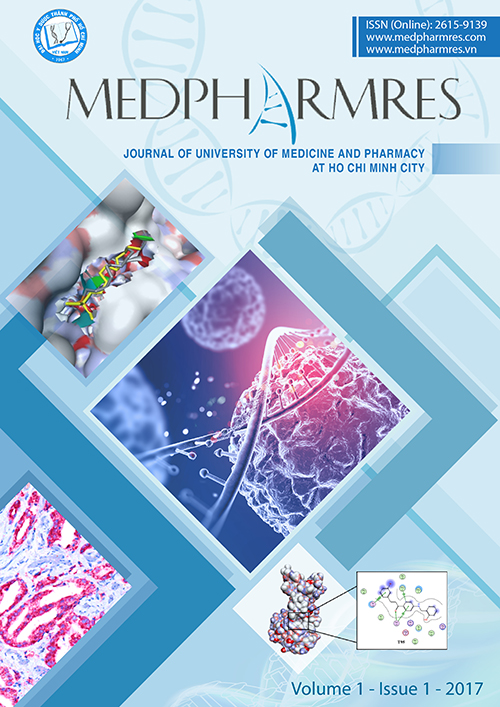The Vietnamese Version of the Health-related Quality of Life Measure for Children with Epilepsy (CHEQOL-25): Reliability
Tóm tắt
Purpose: This study aimed to translate and culturally adapt the self-report and parent-proxy Health-Related Quality of Life Measure for Children with Epilepsy (CHEQOL-25) into Vietnamese and to evaluate their reliability.
Methods: Both English versions of the self-report and parent-proxy CHEQOL-25 were translated and culturally adapted into Vietnamese by using the Principles of Good Practice for the Translation and Cultural Adaptation Process. The Vietnamese versions were scored by 77 epileptic patients, who aged 8–15 years, and their parents/caregivers at neurology outpatient clinic of Children Hospital No. 2 – Ho Chi Minh City. Reliability of the questionnaires was determined by using Cronbach’s coefficient α and intra-class correlation coefficient (ICC).
Results: Both Vietnamese versions of the self-report and parent-proxy CHEQOL-25 were shown to be consistent with the English ones, easy to understand for Vietnamese children and parents. Thus, no further modification was required. Cronbach’s α coefficient for each subscale of the Vietnamese version of the self-report and parent-proxy CHEQOL-25 was 0.65 to 0.86 and 0.83 to 0.86, respectively. The ICC for each subscale of the self-report and parent-proxy CHEQOL-25 was in the range of 0.61 to 0.86 and 0.77 to 0.98, respectively.
Conclusion: The Vietnamese version of the self-report and parent-proxy CHEQOL-25 were the first questionnaires about quality of life of epileptic children in Vietnam. This Vietnamese version was shown to be reliable to assess the quality of life of children with epilepsy aged 8–15 years.

